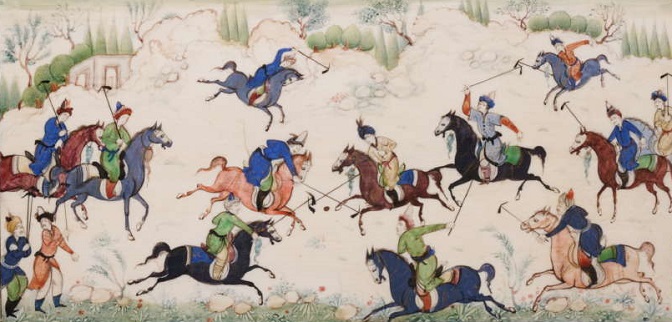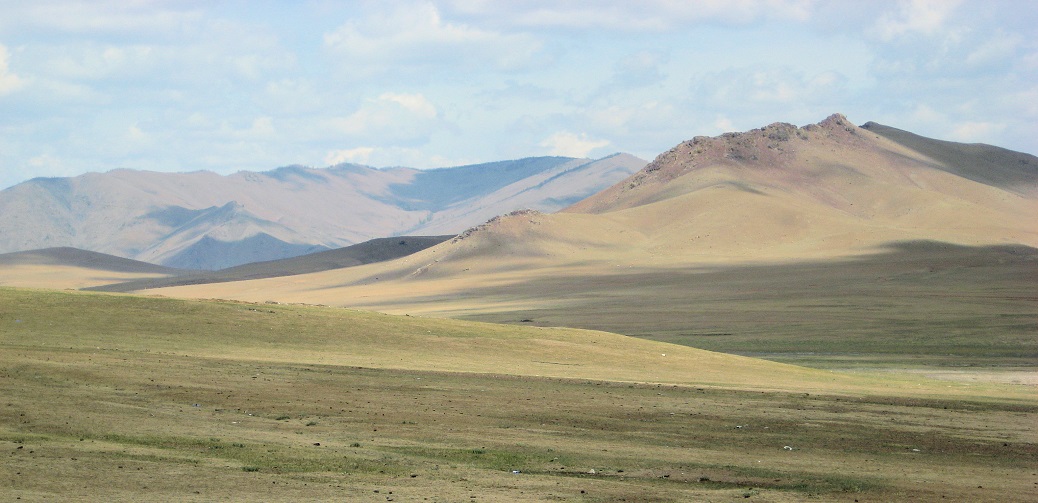I’m proud to announce that Saladin the Strategist: How the Crusaders Lost the Holy Land is finally out! You can purchase it on Amazon. This is the initial release – maps and annotations are not yet included. If you purchase it now for the discounted price, your Kindle version will automatically update when the full […]
Byzantine Emporia
An excerpt from Saladin the Strategist: How the Crusaders Lost the Holy Land, a military history of the great Muslim general. Available on Amazon now. As the year 1185 drew to a close, a long train of horses, camels, and men trudged through the rainy cold of the upper Mesopotamian plain. The army’s mood was […]
How did merchants deal with the bewildering array of currencies that circulated in the Middle Ages? The Venetian grosso, Byzantine hyperpyron, French livre, Florentine florin—all circulated widely, yet all had different values and subdivisions. How did they make sense of it all? They used a concept called money of account. Money of account is a […]
Photos of the eastern Mediterranean from space present an image of sharp contrasts. The coastal plain—just a few dozen kilometers at its widest—is a verdant strip, hemmed in by the coastal ranges and irrigated by the region’s winter rains. The mountains in turn cast a rain shadow on the interior: green vegetation and white snowcaps […]
Below is the transcript for the History Network Podcast episode “Byzantium’s Eastern Frontier”. You can listen to it here, or on iTunes or Spotify. The episode was based on this Twitter thread. The Byzantines, the subjects of the Eastern Roman Empire, were great survivors. They outlasted their cousins in the west by a thousand years, […]
The Sultan of Sultans, King of Kings, Lord of Lords, al-Malik al-Ashraf, the powerful, the Dreadful, the Punisher of Rebels, Hunter of Franks and Tartars and Armenians, Snatcher of castles from the hands of Miscreants, Lord of the Two Seas, Guardian of the Two Pilgrim Sites, Khalil al-Salihi. So began the announcement from the Mamluk […]
We are proud to announce the publication of F.L. Taylor’s 1920 classic Art of War in Italy, 1494-1529 on the birth of Early Modern warfare during the Italian Wars. It is available to US readers here (international rights pending). Below is the editor’s preface: The Italian Wars opened with the roar of French cannons that brought medieval […]
On 26 July 811, a massive Byzantine army was destroyed on the plains between the Danube and the Haemus Mountains. During the Battle of Pliska, the emperor Nicephorus I himself was killed—the first to die in battle since Valens in 378—and his head was turned into a silver-lined drinking gourd by the victorious Bulgarian khan. […]
As a young lieutenant in the Marine Corps, not yet in the fleet, I was given lots of advice on briefing higher-ups. Most of it was what you would expect: give only the most relevant facts up front. Deliver them with confidence. And never, ever try to bullshit when you’re not sure of something. This […]
Middle Rages: Why the Battle for Medieval Studies Matters to America is the latest book from the flamboyant, rightwing bomb-thrower Milo Yiannopoulos. The short volume focuses on the curious case of Rachel Fulton Brown, a well-regarded professor at the University of Chicago who recently found herself at the center of a social-media-fueled firestorm. The story […]
The following is an excerpt from a forthcoming book. It is often claimed with varying degrees of certainty that Heraclius was of Armenian origin. Yet the evidence for this is strikingly thin, amounting to two ambiguous sentences from so many sources. Theophylact Simocatta The first quote comes from Theophylact Simocatta’s history of the Roman-Sasanian War […]
Exactly 566 years ago today, 29 May 1453, Constantinople fell to the Ottoman Turks after a 53-day siege. The Byzantine Empire had been effectively dead for at least a century, but its splendid capital survived behind massive, impenetrable walls. The young Ottoman sultan, Mehmed II, whose empire by that time already stretched from the Danube […]
Roger Crowley has written several books about sea power and conquest: the 1453 capture of Constantinople by the Turks, a history of Venice, and the failed Ottoman siege of Malta. His most recent is Conquerors: How Portugal Forged the First Global Empire, which combines these two interests. In it, tells the incredible story of how a host […]
Anyone with a cursory knowledge of Roman history knows 476 as the year the Western Roman Empire fell. That was when Odoacer, a barbarian military commander serving in the Roman army, deposed Romulus Augustulus and declared himself King of Italy, ending a thousand years of Roman rule in the west. Although Roman emperors continued to […]
Genghis Khan reopened the Silk Road. Julius Caesar brought Gaul into the Roman economy. Alexander the Great forged the Hellenistic world, a cosmopolitan, Greek-speaking culture that linked cities around the Mediterranean. Conquerors have always created new trade patterns and altered economies. By mere fact of bringing large numbers of people across continents—soldiers, craftsmen, merchants, families—they […]
We are proud to announce the release of Byzantine Emporia’s first book. Midway Through the Plunge: John Cantacuzenus and the Fall of Byzantium is now out and available for purchase here. It explores the turbulent change that swept the Byzantine world over just a few years in the middle of the 14th century. The empire had suffered […]
Archaeologists excavating what they thought was a tomb in northern Guatemala have come to a new conclusion: the site was an ancient steam bath complex used 2,500 years ago. It is an amazing example of advanced Mayan engineering, many centuries before the peak of that civilization. Live Science reports: “In the Maya beliefs, caves and baths […]
A Death in the Venetian Quarter is the third in the Fools’ Guild series of novels by Alan Gordon. His first, Thirteenth Night, continues the plot of Shakespeare’s Twelfth Night by following Feste on his adventures—Feste, the former fool to Countess Olivia, has eloped with Lady Viola and apprenticed her in the art of jesting. The action begins in Constantinople, […]
Nearly every book on the Byzantine Empire begins by noting that its people never called themselves Byzantine. They were Romans, and always called themselves such; theirs was the true and continuous legacy of the Roman Empire. Readers may nod along and take this in stride; but by the time they finish reading a millennium-worth of […]
We are happy to announce the upcoming release of our first book, titled Midway Through the Plunge: John Cantacuzenus and the Fall of Byzantium. It is based on the “Fall of Byzantium” series of articles (read it here) about the trials and tribulations of the Byzantine Empire in the middle of the 14th century. This […]
Their buildings, to they extent that they can be called such, confuse the eye at first. Their superficial form is pure Greco-Roman classicism: columns, porticoes, and all. But the rock from which they are carved evokes an earlier, more primitive age. These are the famous monuments of Petra: creations of the Nabataeans, an Arab people […]
Ed West is a British author of compact, popular histories, mostly focused on the Middle Ages. His most recent is The Path of the Martyrs: Charles Martel, The Battle of Tours and the Birth of Europe on the 732 battle that may have been a decisive check on the advance of Islam. The book is […]
The previous post in the Fall of Byzantium series is here. When Emperor John VI Cantacuzenus abdicated and entered a monastery in 1354, he had played a major role in the empire for more than three decades. Over the next nine years, he would write the history of this time, an apology for his career. This […]
The previous post in the Fall of Byzantium series is here. The Byzantine involvement in the latest war between Venice and Genoa was brief but costly. Everything they had won in the Galata War was lost, and there was a large moral cost to this defeat. John Cantacuzenus was now less popular than ever before. Around […]
The previous post in the Fall of Byzantium series is here. With the signing of peace between Byzantium and Genoa in March 1349, John Cantacuzenus could finally focus on governing the empire. The increased customs receipts coming into the treasury improved matters somewhat. John also reformed the tax system so that it would both draw more revenue […]
The previous post in the Fall of Byzantium series is here. Constantinople had suffered much over the past century and a half. The Fourth Crusade, Latin rule, and the recent war had taken a huge toll on the city. The capital was densely packed with refugees and the population weakened by hunger. So when the Black […]
The previous post in the Fall of Byzantium series is here. When John Cantacuzenus entered Constantinople on the night of 2 February 1347, the Byzantine Empire had been at war with itself for a little over five years. The war had been unnecessarily destructive, prolonged by the intransigence of the regency. Even when their troops could […]
The previous post in the Fall of Byzantium series is here. John Cantacuzenus was at his headquarters in Thrace when he heard the news that he had been stripped him of his titles and declared an outlaw. A stream refugees arrived soon after from Constantinople, bringing stories of the depredations committed against anyone even suspected of […]
The previous post in the Fall of Byzantium series is here. Andronicus III died in May 1341 after an energetic and largely successful reign of thirteen years. Although he had lost nearly all of Asia, he more than made up for that with his gains in Europe. The empire was bigger, richer, and stronger than […]
Previous post in this series on the fall of Byzantium is here. Of all the emperors to rule during the last two centuries of Byzantium, John Cantacuzenus was one of the most interesting. As described in the introduction to this series, his reign faced him with an unbroken series of dilemmas that produced irrecoverable disaster […]
Yesterday’s post introduced John Cantacuzenus, one of the most significant of the last Byzantine emperors who faced a series of impossible dilemmas which saw a further crumbling of the empire from its already dilapidated state. Before looking at the difficulties of his reign, let us see how the empire got to such a wretched state in […]
Imagine a man tumbling down a steep, rocky mountain. He might have so much control as to slide left or roll right. Perhaps he could aim for the flattish, gravelly stretch right before the precipice; or, he could continue down the hard-packed slope. But whatever choice he makes, his destiny is out of his hands. Every […]
In July of 1343, a company of English knights, squires, churchmen, and men-at-arms appeared before Algeciras, in southernmost Spain. There they found King Alfonso XI of Castile, who had been besieging the city since the previous summer. Algeciras was an important port city on the Strait of Gibraltar which allowed the emir of Granada to […]
The Dalmatian Coast is one of the most spectacular and rugged stretches of coastline in the world. The multitude of inlets shelter gorgeous cities of red-tile roofs and pristine beaches, while splinter-shaped islands line the coast. Behind it all, the Dinaric Alps rise up, a backdrop of incredible scenery. The thin sliver of coastline has […]
A recent study by academics at Oxford and elsewhere has concluded that grisly stories of ancient Phoenician child sacrifice were true: Children – both male and female, and mostly a few weeks old – were sacrificed by the Carthaginians at locations known as tophets. The practice was also carried out by their neighbours at other Phoenician […]
Before the Spanish Reconquista began making serious gains, and before the First Crusade was launched for Jerusalem, there was another counteroffensive fought by the forces of Christendom against Islam. This first reconquista was of the rich island of Muslim Sicily. The island had been in Muslim hands since the early 10th century, when the armies […]
An ancient Chinese shipwreck in the Java Sea has been found to be much older than previously thought. The new dating places it within a vast and intricate trading network that spanned from southern China to Egypt. The story of this ship and its cargo adds color to an already fascinating world. A Major Haul The […]
National Geographic covers an astounding discovery in northern Guatemala. Researchers used special techniques have been used to survey an archaeological site in northern Guatemala has revealed a vast complex of cities home to some million people. Using a revolutionary technology known as LiDAR (short for “Light Detection And Ranging”), scholars digitally removed the tree canopy […]
16th-century Genoa was in an odd spot. The previous two centuries (part 1 on Genoa is here) had been a series of disasters for the interests of the trading republic. The splintering of the Mongol empire made overland routes from the Far East hazardous, reducing the flow of merchandise to the eastern Mediterranean. The Ottoman conquest […]
Quartz has an interesting article on the word for tea in different languages. Almost all languages today use variants of one of two different words: tea and cha. Languages like French (thé), German (Tee), and Dutch (thee) are examples of the former, while the Turkish, Persian, Russian, and Hindi (chai) are examples of the latter. What […]
The beginnings were inauspicious. A middle-aged man, accompanied by a paltry group of followers, sought refuge from the hounds of their oppressors in a remote mountain fastness. For decades, their people had been persecuted by one of the most powerful empires the world had ever seen—the Seljuk Turks. The wretched group found themselves before the imposing fortress […]
Cosmos Philly profiles the few surviving Griko communities of the southern Italian region of Calabria. The Griko (sometimes spelled Greko) are the last remnants of thousands of years of Greek presence in Italy, and their language is now critically endangered. Greeks first settled in Italy around the 9th century BC, when inhabitants of mainland Greece […]
The Late Antique Folklore blog has a post on Byzantine legends from the sea. The tales are from Procopius, a 6th-century court official in Constantinople who served under Justinian, and is the most important source for the period. Procopius liberally sprinkled his writings with anecdotes and observations, two of which LAF recounts. The first is a story […]
An exciting new discovery has been made in England. A man tromping through his fields stumbled into a rabbit hole that concealed a secret. The hole was in fact a narrow tunnel leading to a door. Behind it was a small series of caves, hollowed out by the medieval military order called the Templars. This […]
Part 1 of our Swahili Coast articles mainly discussed the role of Arab and Persian merchants in East African commerce. But the Indian Ocean was an integrated whole, with extensive trade among all peoples on the coasts. Objects from India appear in the archaeological record from as early as the 7th century AD, and trade colonies […]
Archaeologists in Vietnam have discovered a 4,500-year-old trading network. The network stretched hundreds of miles across several river systems, down to the Mekong Delta. Several stone tools quarried in the Southeast Asian highlands were found at the site in southern Vietnam, where such stone is completely absent. Long-distance trade in the ancient world was usually associated […]
A 55-kilometer stretch of an ancient Roman road has been discovered in western Turkey. The road connected Smyrna (modern Izmir) on the coast with Manisa, an inland town. An archaeologist working on the project observed: It is noteworthy that the road is as solid as the first day it was built. Our examination showed that large […]
William Dalrymple reviews a harrowing account of the race to save Timbuktu’s ancient manuscripts during Al-Qaeda’s takeover of the city in 2012: The realisation that Timbuktu’s fragile heritage was in danger set off alarm bells across the world. The city was once one of Africa’s most revered centres of learning and the arts. From the 13th […]
The Reconquista was the long, drawn-out struggle by Christians to expel the Muslim occupiers, or Moors, from Spain. The nearly eight centuries of conflict saw many back-and-forths, with complicated alliances forming among the major powers. For most of that time the ultimate outcome lay in doubt. Yet the Christians inexorably pushed forward. Like large waves in a receding […]
A recently-translated ancient Chinese text sheds light on international relations in the 3rd century AD. A Roman delegation, sent by Marcus Aurelius, reached the Chinese court in 166, followed by several others over the next century. The court official Yu Huan, writing in the 3rd century, spoke with some of the Romans on these later expeditions, and recorded a fair account: (more…)
Sometime in 862, a man by the name of Riurik first set foot in the land we now call Russia. His ancestors had long feuded with the natives of the land, but he came in peace. Indeed, he was invited by the lords of the indigenous people to come rule over them, as a foreign king, so that his impartial justice could put an end to their domestic squabbles. (more…)
There is a recent New York Times article describing a fascinating series of discoveries off the coast of Bulgaria. These Black Sea shipwrecks have shed incredible light on ancient and medieval navigation: (more…)
The Republic of Venice earned its place in history through its consummate mastery of Machiavellian scheming and diplomacy. Creating its trade empire amidst the ceaseless wars between Christians and Muslims in the East, agents of the Serene Republic were well-versed in playing one rival off another to their commercial advantage. But surely as piglets shove and jostle at their mother’s teat, the Venetians had to ward off other claimants to so rich a prize as trade with the Orient. Among all the other Italian mercantile city-states, only one was potent enough to mount a formidable challenge: the Republic of Genoa. (more…)
Between the Senegal River and modern Liberia lies a marshy, tropical coastline that is one of the most densely-populated in Africa. Early Portuguese explorers noted its agricultural productivity, and the region came to be called the “Grain Coast” for its surplus of rice and millet. The Portuguese quickly set up trade posts here to provision their expeditions further south, initiating regular contact between Europeans and Africans. (more…)
The merchant of centuries ago spent his life enduring monotony and hardship by turns. Weeks might be spent in the saddle staring at an unchanging landscape, or on the deck of a ship with nothing but open water all around, only to be abruptly set upon by a ferocious storm or an avaricious pack of bandits. The pendulum swings between boredom and misery were made worse by the constant loneliness of traveling in lands far from home. Among people foreign in their customs and speech, even basic communication was difficult. (more…)
Games are often compared to war, and words like “blitzkrieg” or “onslaught” are common clichés of sports journalism. As far removed as modern sports are from real combat, they have always been seen to encourage the teamwork, discipline, and physical toughness necessary to make good soldiers. One game still played today, though, was created specifically to fill army ranks with brave and skilled fighters. (more…)
Sometime before 100 B.C., Greek sailors coming from Egypt discovered a shortcut to India. Much easier and more direct than the arduous overland route, or than hugging the deserted coastlines of Arabia and Persia for 5,000 miles, this route took only weeks to travel. Sailing straight out into the open waters of the Arabian Sea during the late spring, […]
The biggest single driver of events in European and Asian history has been the migration of peoples across the open grasslands of northern Eurasia. In the millennia between the domestication of the horse and the age of gunpowder, nomads ranged across this Great Eurasian Steppe which spanned the two continents, bringing trade and war by turns. The southern […]
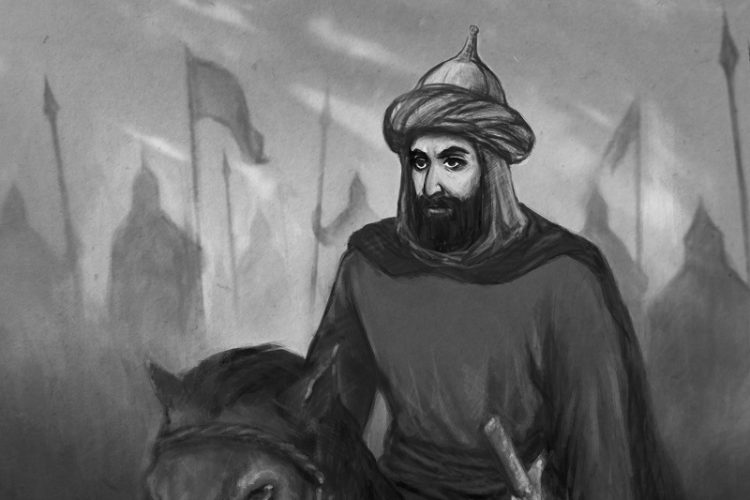




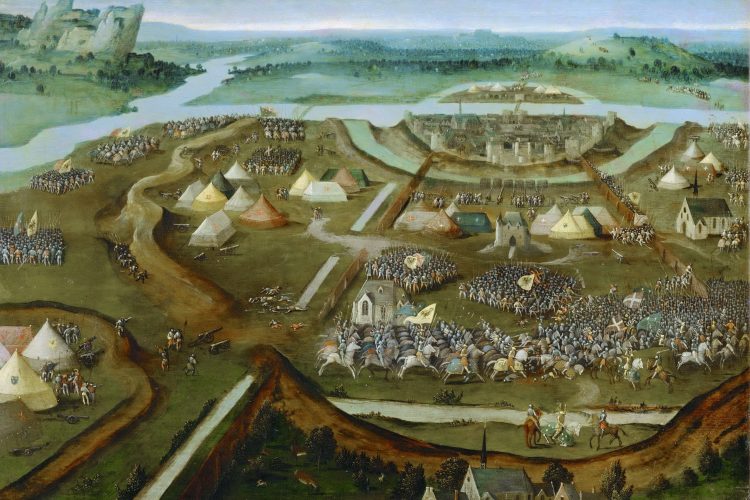






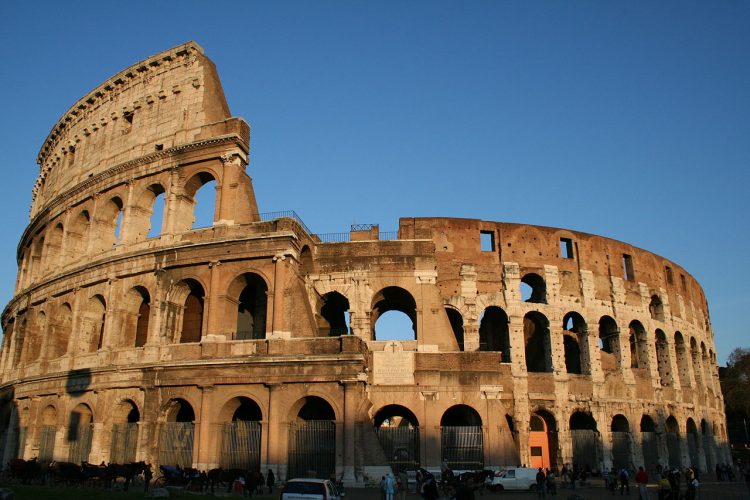



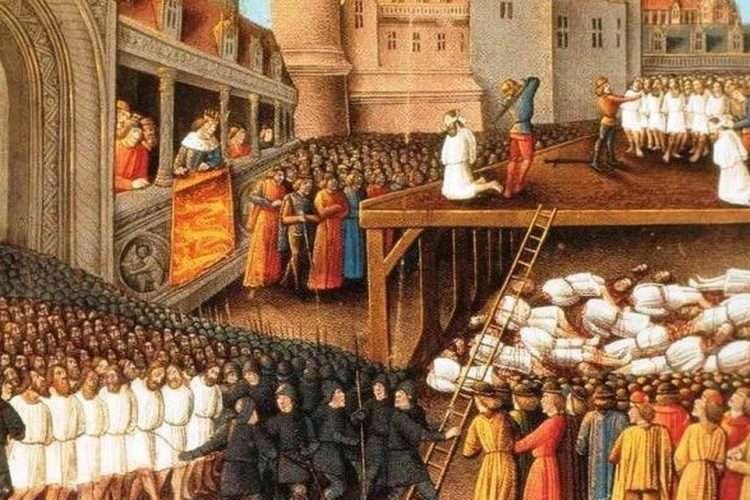
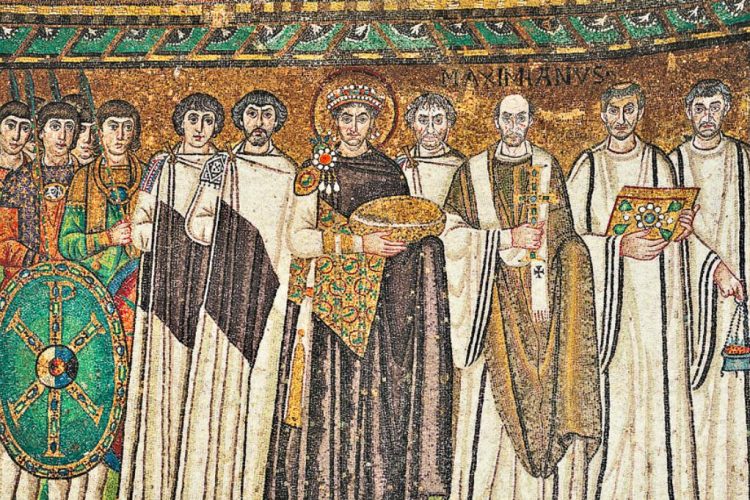





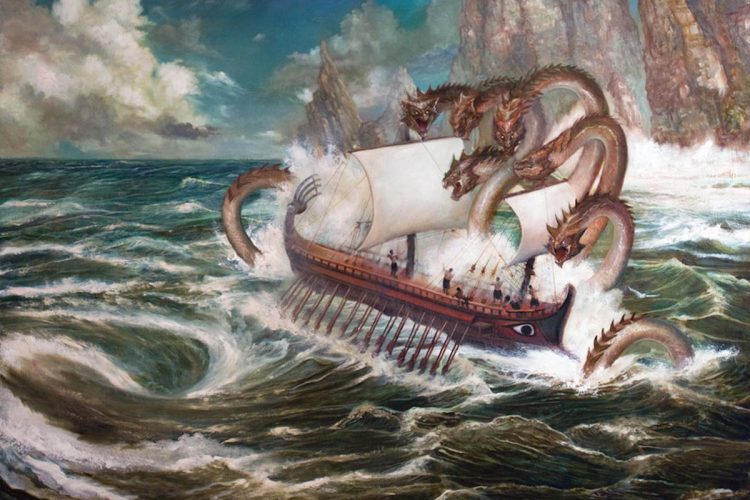
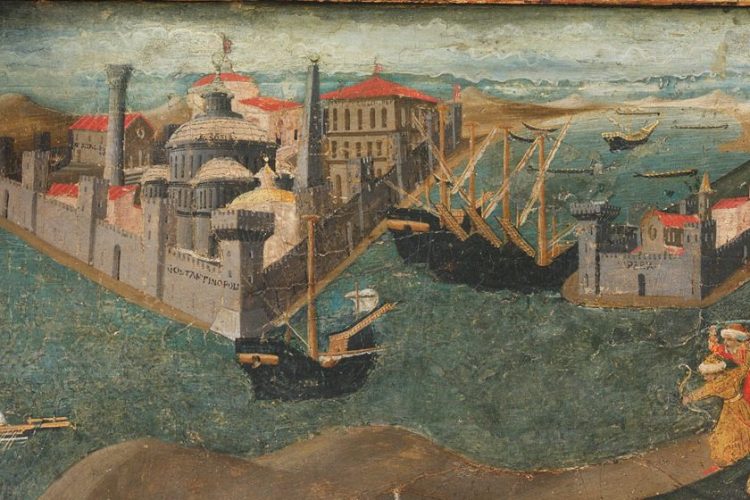
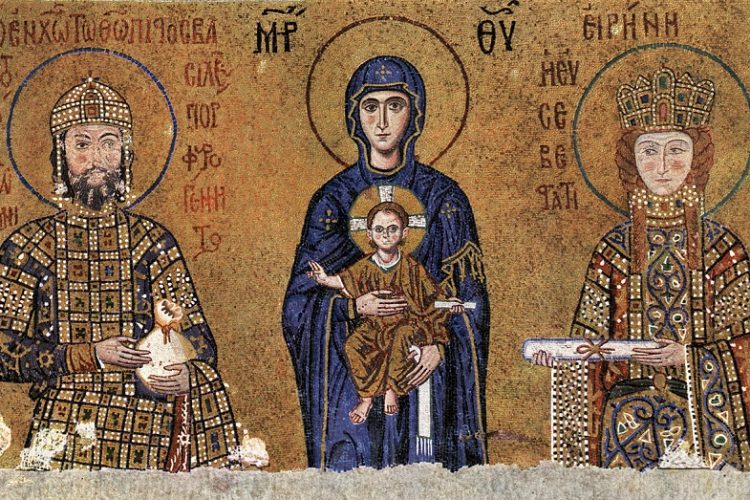

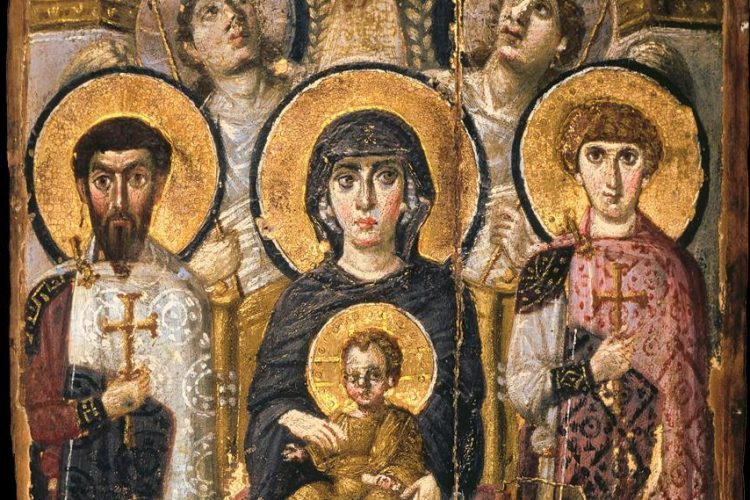


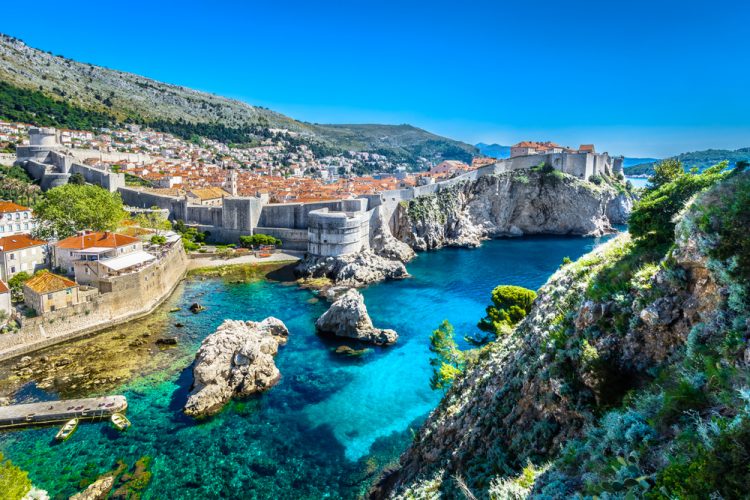
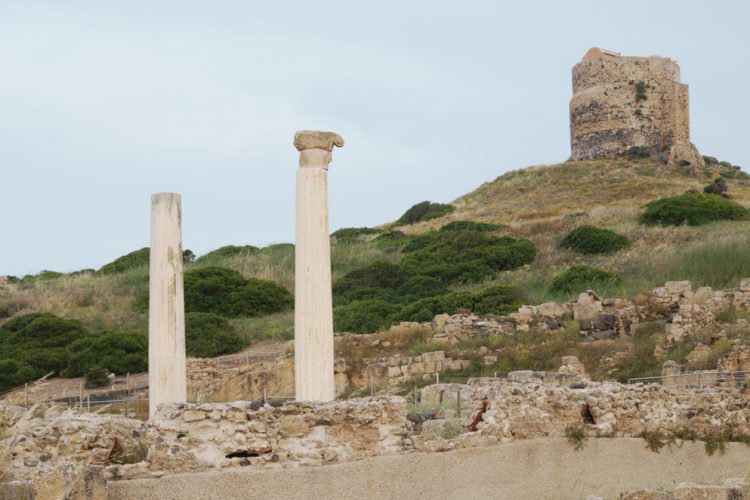
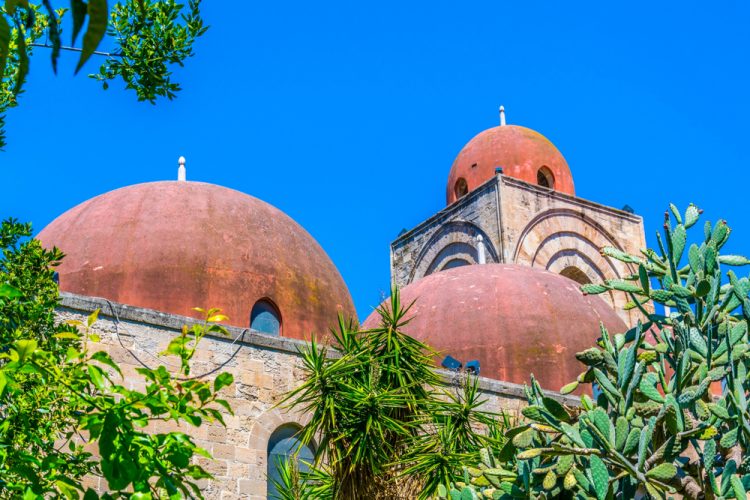
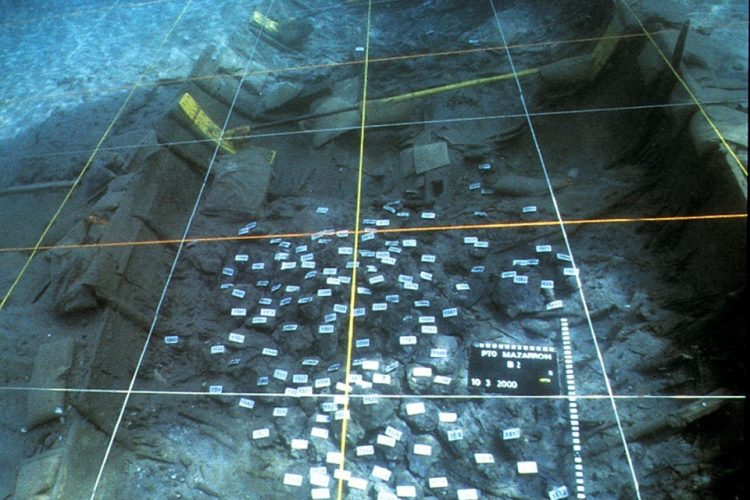
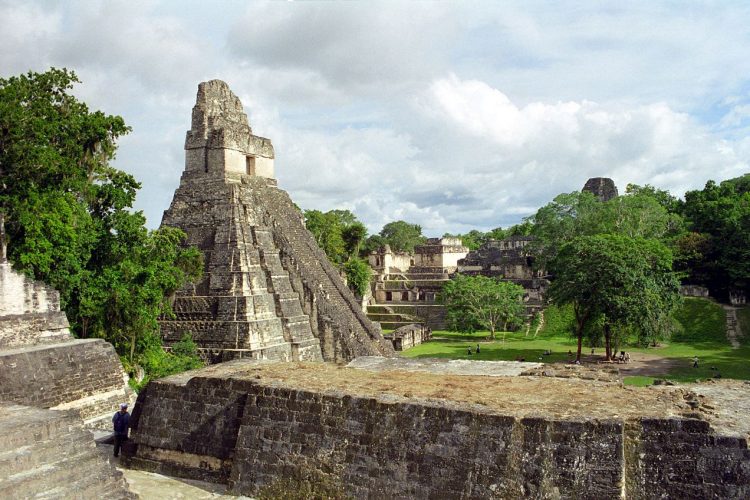










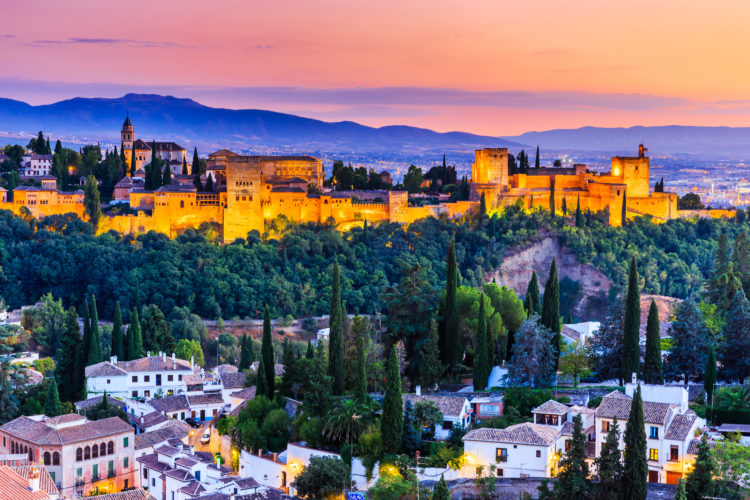
_卷-The_Qianlong_Emperors_Southern_Inspection_Tour_Scroll_Six-_Entering_Suzhou_along_the_Grand_Canal_MET_DP105246-750x500.jpg)






